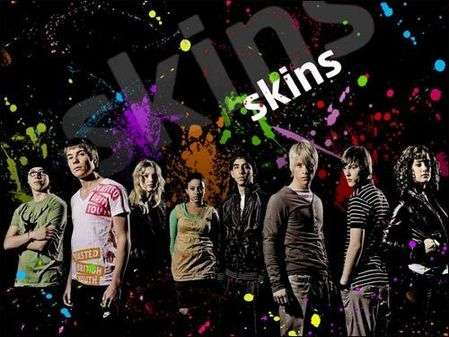
Britons often use slang – especially with friends. A lot of these words are shared with other English-speaking countries, but many are unique to the British Isles. To help you cotton on (slang for "understand"), here are some common words you may hear in the UK。
英國人使用很多俚語,尤其朋友之間。其中很多詞其他的英語國家也說,但有些是不列顛群島特有的。為了幫你"cotton on"(俚語,理解),以下提供一些在英國常能聽到的詞匯。
【打招呼、感謝】
Alright? – Hello. How are you? 你好
Hiya, Aye up – These informal greetings both mean Hello and are especially popular in the north of England. The aye is pronounced like the letter A。
這兩種非正式的打招呼用法,都是"你好"的意思,在英格蘭北部非常流行。其中"aye"發音與字母"A"同。
Howay – Let's go or Come on. 走吧
Ta – Thank you 謝謝
Cheers – This is usually said as a toast when you raise your glasses to celebrate, but it also means Thank you。
這個詞通常在舉杯祝酒的時候說,但也可以表示謝謝。
【人的稱呼】
Bairn – Baby or young child 小孩子
Lad – Boy 男孩
Lass, Lassie – Girl 女孩
Bloke, Chap – Man 男人
Mate, Pal – Friend 朋友、伙計
Our kid – My brother or my sister 我的兄弟或姐妹
Don't be confused if someone calls you pet, duck, sweetie, love, chicken, chuck, chucky-egg or sunshine. People in the UK often use these terms when they are addressing other people as a sign of friendliness and affection. It is usually not appropriatefor younger people to use these terms with older people, however。
如果有人叫你pet、duck、sweetie、love、chicken、chuck、chucky-egg或sunshine,不要覺得奇怪,英國人喜歡用這些昵稱來表達友好和喜愛之情。不過年輕人這樣稱呼長輩就有些不妥。
【社交、約會】
Do – Party. You would go to a do if you were going to a party in the UK。
派對、聚會。在英國,參加派對就是"go to a do"。
BYOB – Bring your own bottle. In the UK, it is common for the party host to ask guests to bring their own drinks. You might see BYOB written on the invitation。
自帶酒水。在英國,派對的組織者通常會讓客人自帶酒水,你可能在請帖上看到BYOB這個詞。
Cuppa – Cup of tea 一杯茶
Pissed – Americans may think this means upset. But in the UK it is the equivalent of being drunk。
美國人可能認為這個詞表示心煩不高興,但在英國這個詞是喝醉了的意思。
E.g., "Is he pissed?"他是不是喝醉了?
Fancy – To find someone attractive 覺得某人迷人
E.g., "He just smiled. I think he fancies you!"
他剛笑了。我覺得他喜歡你。
Ask out – To ask someone if they want to go on a date 邀請某人外出約會
E.g., "He asked me out! We're going to the cinema this Friday."
他約我了!我們周五要去看電影。
Chat up – To flirt with someone 和某人調情
E.g., "He was chatting me up at the party."
派對上他一直在跟我搭訕。
Snog – To kiss passionately 熱吻
E.g., "My dad and mum were snogging at their anniversary party. I didn't know where to look."
爸媽在結婚周年紀念上熱吻,我都不知道該往哪兒看了。
Chin-wag – Talk or gossip with friends 和朋友閑聊、八卦
E.g., "Fancy a chin-wag?"想聊聊嗎?
【金錢】
Quid – Equal to £1. The word doesn't change in the plural, so £50 is fifty quid。
一英鎊。這個詞沒有復數形式,所以50英鎊就是fifty quid。
Skint, Broke – Poor or lacking money 很窮、沒錢
E.g. "I can't come to the restaurant as I'm skint this week."
我不能下館子,本周是窮光蛋一個。
Minted, Rolling in it – Rich 有錢
E.g. "It was my birthday last week and I got some money off my family, so I am minted now!"
上周我過生日,家里人給了些錢,我現在發達了。
Splashing out – Spending a lot of money 花大筆錢
That's as cheap as chips – That is very cheap 非常便宜
That costs a bomb – That is too expensive 太貴了
That's a rip-off – That is not worth the price 搶錢呢吧
Cough up! – Pay your share of the bill! 快掏錢付你自己那份賬單!
【物品】
Brolly – Umbrella 雨傘
Telly – Television. Some people also say "What's on the box?" to mean "What's on TV?"電視。一些人也說"What's on the box?",表示電視上在演什么。
Loo – Toilet 廁所
Mobile – Mobile telephone. It is unusual to say cellphone in the UK。手機。在英國說cellphone會很奇怪。
【強調、感嘆】
Bloody – One of the most useful swear words in British English. Mostly used as an exclamation of surprise e.g. "bloody hell".Something may be "bloody marvelous" or "bloody awful". It is also used to emphasize almost anything, e.g. "you're bloody mad", "not bloody likely"。
英國英語里最有用的臟話。多用于表達驚訝之情,如bloody hell(該死、見鬼、我的天)。某事物可以是bloody marvelous(超贊的),也可以是bloody awful(糟糕透了)。它還以用來強調幾乎任何事情,如you're bloody mad(你簡直瘋了)、not bloody likely(沒門兒)。
In the UK, you may hear people use the slang terms "well", "dead" or "mega" instead of "very" or "really". For example, "It was dead good" or "That exam was well difficult!"
在英國,你可能會聽見人們使用俚語用法的well、dead、mega來代替very或者really。如It was dead good(棒極了),或That exam was well difficult。(考試好難。)
(來源:中國日報雙語微信,編輯 Helen)